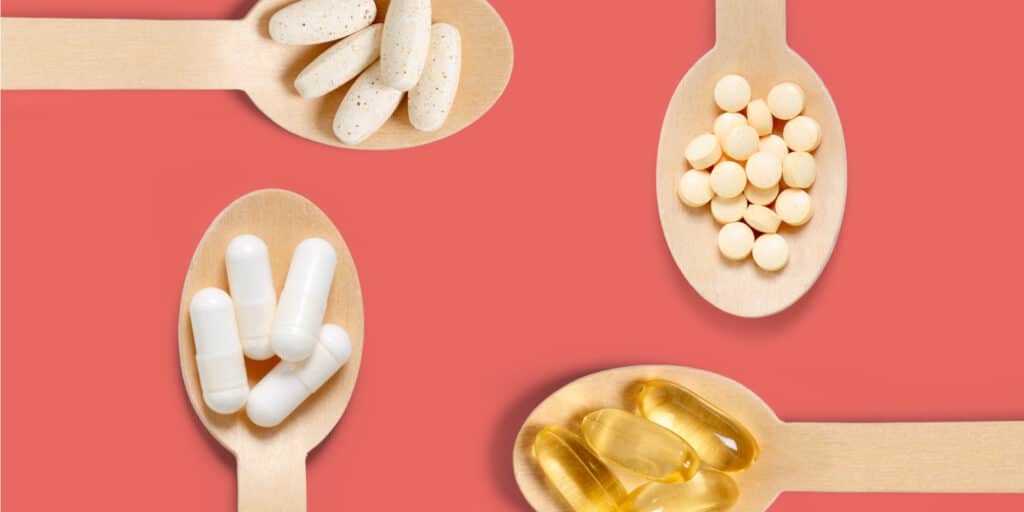If you’re living with an autoimmune disease, you’ve undoubtedly come across recommendations for supplements that can help alleviate symptoms. Supplements can be a great way to boost your immune system, and help your body get the nutrients it needs to function properly. But, with so many options to choose from, what are the best supplements for autoimmune diseases? Below, we’ll walk you through everything you need to know about taking supplements for autoimmune diseases and give you our recommendations for the four best.
Four Best Supplements for Autoimmune Diseases

There are many different types of autoimmune diseases, all of which can cause an array of symptoms and ailments. These disorders cause the over-activity of your immune system. This over-activity causes your body’s immune system to attack and damage its tissues, which can lead to chronic inflammation, pain, and a decreased ability to fight infections. Treatment for autoimmune diseases generally focuses on reducing immune system activity.
One way to fight the symptoms of autoimmune diseases is to start a supplement regimen. Since autoimmune diseases cause your body to fight itself, taking supplements that are known to promote a healthy immune system can help ease the symptoms caused by this ongoing battle.
While there are no one-size-fits-all recommendations when it comes to what supplements work best for a given autoimmune disease, there are a few broad categories that can work together to support your immune system. Below, we’ll take a look at the four best supplements for autoimmune diseases, starting with one of the most effective: glutathione.
Glutathione
Glutathione is one of your body’s most potent antioxidants. It plays a key role in several of your body’s major functions, including the binding and elimination of toxins. This means that glutathione is vital for optimal immune function.
Typically, glutathione is found in large amounts in your liver, but it is also found in nearly every cell in your body. Glutathione is made up of three key amino acids— cysteine, glycine, and glutamate — which help bind free radicals and toxins. Once it has bound them, it can safely move them out of your system.
While your body can produce relatively small amounts of glutathione naturally, poor diet, exposure to toxins, medications, stress, and illness (like autoimmune diseases) can all deplete your body’s glutathione reserves. Glutathione deficiency factors into oxidative stress as well as triggering your body’s inflammatory response. This deficiency becomes even more apparent when you consider that some of the most common autoimmune diseases— such as rheumatoid arthritis, Crohn’s disease, and multiple sclerosis— all stem from chronic inflammation.
Without proper levels of glutathione, your body cannot properly get rid of toxins. As a result, these toxins can build up in your bloodstream or get stored in fat. This can put added stress on your immune system and can even lead to chronic illness.
It can be difficult to get glutathione through your diet alone, which is why taking it as a supplement is often recommended. Try looking for “acetylated” forms of glutathione, as it is easily absorbed by your body without breaking it down.
Vitamin D
Vitamin D is one supplement that many of us are familiar with. Previously, Vitamin D has been known for its role in bone health, however, it has now become synonymous with many other health benefits for the skin, brain, and most importantly your immune system. Vitamin D deficiency is becoming an increasingly well-known concern around the world. Deficiency can lead to a host of negative health effects, including muscle weakness, pain, fatigue, and depression.
Recent studies have found that the use of vitamin D supplements can not only help regulate and keep symptoms of autoimmune diseases low, but it can also significantly lower your risk of disease in the first place. Vitamin D regulates specific gene expressions, inflammatory markers, and immune cells, which are all directly a part of the autoimmune cascade. Other similar studies have found that individuals with lupus and multiple sclerosis had increased deficiencies of vitamin D.
While it’s true that your body can make vitamin D from sunlight, it can be difficult to get enough this way, as this process undergoes multiple conversions before your body can properly use it. Taking vitamin D supplements is an easy, effective way to boost your immune system, and can be extremely beneficial for those with autoimmune diseases.
Resveratrol

Resveratrol is a polyphenol, a type of plant compound typically found in things like red wine, dark chocolate, and berries, which has been found to have significant beneficial effects on your metabolism, healthy aging, and your immune system. Recent research has found that resveratrol acts as an anti-inflammatory and immune-modulator, which makes it one of the best supplements for autoimmune diseases.
Resveratrol also supports heart health, which is extremely important for people with autoimmune diseases, as they are more susceptible to heart disease than the general population. A recent study found that women aged 35 to 44 with lupus are 50 times more likely to have a heart attack than other women of similar age.
Resveratrol works by protecting the innermost layer of your arteries, known as the endothelium, and increasing your production of nitric oxide, which helps support balanced, healthy blood pressure. While foods like dark chocolate, berries, and red wine all contain resveratrol, they often contain very low amounts. Furthermore, they also contain other ingredients that you should limit your intakes of, such as alcohol, sugar, and sulfites. By taking resveratrol as a supplement, you can get all of the health effects it provides, without the downsides of other ingredients.
Curcumin
Curcumin is another supplement that you may have heard of, as it has gained popularity in recent years. It comes from a highly concentrated extract of another popular health food: turmeric. Curcumin plays an important role in controlling your body’s inflammatory response, a healthy immune system, and healthy aging. Research has shown that curcumin can positively impact the expression of genes that regulate systemic inflammation, which makes it a great supplement for autoimmune diseases.
Additional research on curcumin has demonstrated favorable outcomes in decreasing the symptoms of rheumatoid arthritis and lupus nephritis, such as pain, proteinuria, hematuria, and lowered blood pressure. As curcumin is one of your body’s most powerful free-radical fighters, it is an essential part of a properly functioning immune system.
Much like glutathione, getting the right amount of curcumin via supplementation can be difficult, as many available supplements are not absorbed well by your body. Oftentimes, these supplements are metabolized in your liver before they are even properly utilized by your body. Because of this, try looking for a liposomal form of curcumin. Liposomal Curcumin works by coating the curcumin with a thin layer of fat from medium-chain-triglyceride (MCT) oil. This stops your body from absorbing it before it has been utilized.
Bottom Line: What Are the Best Supplements for Autoimmune Diseases?
While the above-mentioned supplements are great options for anyone with an autoimmune disease, the bottom line is that the best supplements for autoimmune diseases are ones that you and your doctor have talked about, and that is safe and effective for your condition. When making changes to your lifestyle, especially when you are thinking about taking supplements, it’s always important to consult with your doctor, as they can help you determine what supplements, if any, are best for you. They can also help recommend other types of treatments for your condition, which may help relieve any symptoms you are currently living with.
What Supplements Did We Miss On Our List?
Let us know in the comments section below!
What topics related to autoimmune diseases should we cover next?
Email us your ideas at info@painresource.com, we may just feature yours in a future article!
Looking for advice on the best supplements for autoimmune diseases?
Join the Pain Resource Community today by clicking here, and start connecting with other people just like you!

